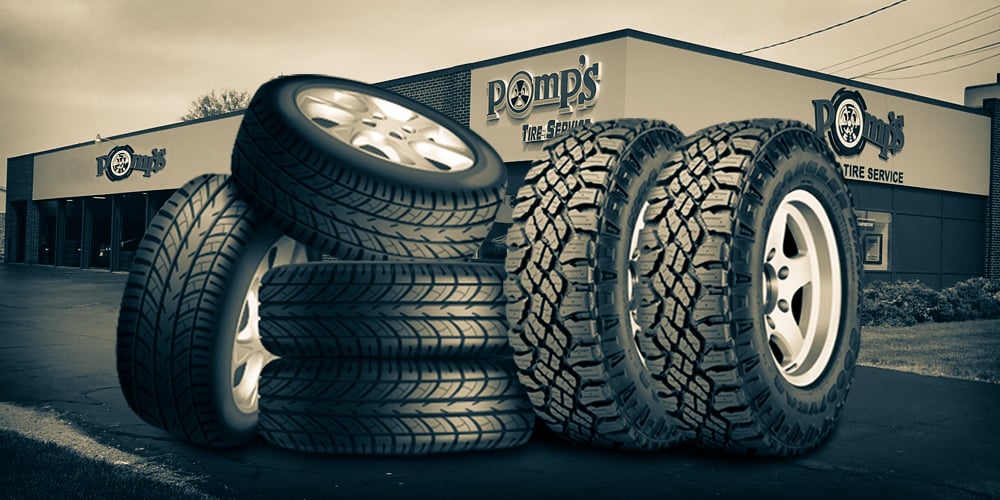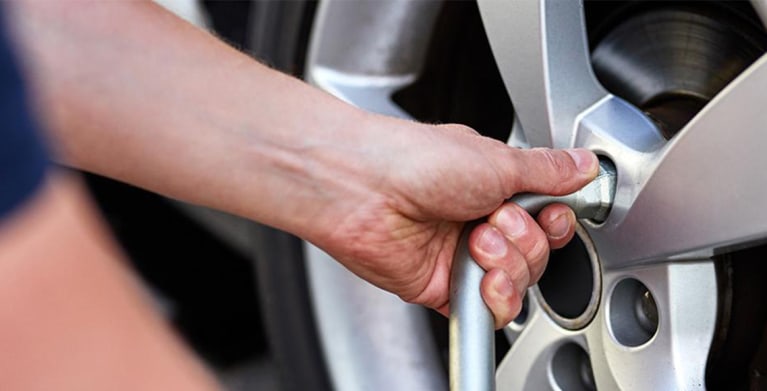Tire Solution: The Impact of Weather
When it comes to making sure optimal performance and safety on the road, understanding the influence of weather condition problems on tire service is vital. GMC Tire Service. In this discussion, we will certainly explore the intricate partnership between climate conditions and tire service, losing light on the relevance of weather-specific tire maintenance practices and factors to consider.
Warm and Tire Performance
When revealed to high temperature levels, tires experience modifications in performance that can significantly influence car safety and handling. The warm generated from extended driving or hot weather condition conditions creates the tire rubber to soften, leading to minimized step life and raised wear. As the rubber becomes softer, the tire's grip when traveling decreases, affecting stopping ranges and overall traction. In severe cases, extreme warm can even create tire blowouts, posturing a serious safety risk to the lorry and its passengers.

Cold Weather Condition Results
Cold climate problems can have a substantial influence on tire efficiency and safety. As temperature levels drop, tire rubber can solidify, bring about reduced grip on icy or snow-covered roads. In winter, tires might also lose air pressure more quickly, which can affect handling and gas performance. Additionally, chilly temperature levels can cause tire sidewalls to tense, enhancing the danger of damages from pits or other roadway dangers.
To alleviate the results of winter on tires, it is important to regularly check tire stress and inflate them to the maker's suggested degrees. Making use of winter or all-season tires made for winter problems can also enhance traction and hold on icy or snowy roads. Correct tire upkeep, consisting of regular evaluations for wear and damages, comes to be also much more vital during chillier months to make certain optimum efficiency and safety.
Rainy Issues Effect
Tires with worn-out treads are more vulnerable to hydroplaning, where a layer of water develops up in between the road and the tire surface area, leading to loss of grip. To battle this, vehicle drivers need to routinely check their tires for adequate walk depth and consider investing in tires read the full info here particularly made for wet problems.
In addition, rainy weather condition can additionally decrease presence, making it testing for chauffeurs to see the roadway ahead plainly (GMC Tire Service). In such problems, it is necessary to adjust driving speeds accordingly and maintain a risk-free adhering to distance to permit abrupt quits. Effectively inflated tires can likewise help in maintaining control on damp roads by giving better handling and grasp
Snow and Tire Safety
When driving in snowy conditions, having the right tires can make a significant difference in safety and security and performance. Winter tires are designed with unique rubber compounds and walk patterns to provide far better traction on snow and ice compared to all-season tires.

It is crucial to adhere to maker instructions when making use of and mounting tire chains to avoid damage to the tires and car. By picking the appropriate tires, maintaining correct inflation, and considering added traction aids like tire chains, chauffeurs can boost their safety and security when navigating snow-covered roads.
Weather-Related Tire Maintenance
When confronted with numerous climate condition, correct tire upkeep becomes an important facet of automobile safety and security and performance. Weather-related tire upkeep encompasses a variety of methods targeted at making sure optimum tire feature and long life in different climate situations. One essential facet of weather-related tire maintenance is tire stress guideline. Changing temperatures can cause tire pressure to vary, affecting traction and fuel efficiency. Frequently examining and changing tire stress according to manufacturer referrals is vital for secure driving in transforming weather problems. Additionally, tire tread deepness plays a considerable function in handling various climate aspects. Tires with sufficient walk depth offer far better grip on wet or icy roads, this contact form minimizing the danger of skidding or hydroplaning. Examining tire tread regularly and changing tires when walk wear gets to a certain deepness is important for preserving grip and stability in negative weather. By prioritizing weather-related tire upkeep, vehicle drivers can enhance safety and security, boost vehicle performance, and lengthen the life expectancy of their tires.
Verdict
Finally, weather problems have a considerable influence on tire performance and safety and security. From warmth influencing tire pressure and use to cool climate reducing traction, it is important to consider the climate when keeping and making use of tires. Rainy conditions can decrease grasp and lead to hydroplaning, while snow can raise the threat of mishaps if tires are not properly equipped. Weather-related tire upkeep is crucial in making sure ideal performance and safety when driving.
In this discussion, we will see here now explore the complex relationship between weather condition conditions and tire solution, dropping light on the relevance of weather-specific tire maintenance techniques and considerations.
